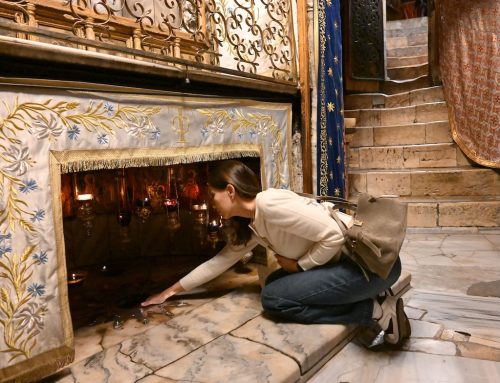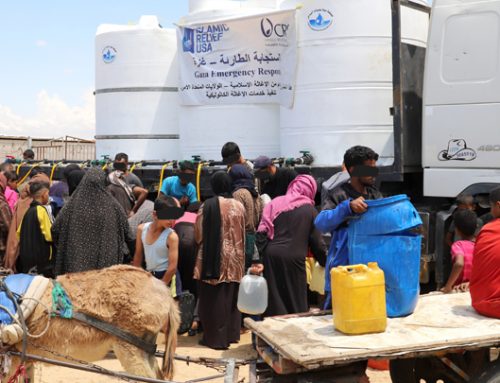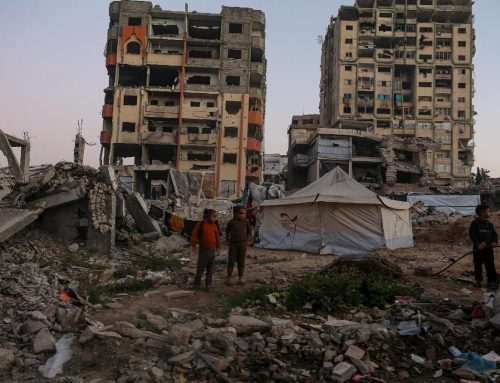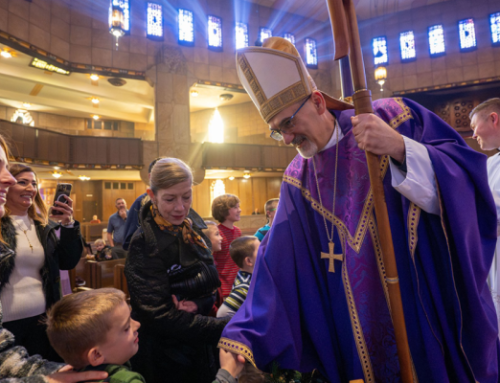By Saliba Sarsar, Vice President for Global Initiatives & Professor of Political Science, Monmouth University; HCEF secretary of the Board
Christians in the Holy Land, especially Palestinian Christians, are living under duress. In Bethlehem, the birthplace of Jesus, now only 18 percent of the population is Christian. In Jerusalem, where Jesus was crucified and resurrected, the percentage of Palestinian Christians is a far lower 1.5 percent, or 12,000 out of some 800,000 people. The remaining population is made up of around 65 percent of Israeli Jews and 33.5 percent Palestinian Muslims. In 1948, by contrast, Christians numbered 25,000 in the city, out of approximately 165,000 inhabitants, or 15 percent.
If the number of Palestinian Christians continues to dwindle, it will not be long before the roots of Christianity dry up in its very birthplace, and churches are turned into museums rather than vibrant houses of worship. By way of example, some 2 million Christians lived in Turkey at the start of the 20th century. Today no more than 100,000 remain, along with other religious minority groups, amid 79 million Muslims. The number of Iraqi Christians stood at 1.4 million in 1987. At the start of the American invasion in 2003, it was down to 550,000, and it is less than 450,000 today.
Reasons for the shrinking number of Palestinian Christians include lower birth rates than Muslims and Jews, and emigration that has accelerated during the past decade. Some Israeli Jews, including Israel’s ambassador to the United States Michael Oren, blame Muslim extremism for their predicament. Palestinian Christians, however, point to the Israeli occupation, with its military checkpoints and separation wall as the primary causes of their pain and suffering, as well as worsening economic and social conditions.
According to the State Department’s July-December, 2010, International Religious Freedom Report, Palestinian church leaders also cite “the limited ability of Christian communities in the Jerusalem area to expand due to building restrictions, difficulties in obtaining Israeli visas and residency permits for Christian clergy, Israeli government family-reunification restrictions, and taxation problems as reasons for increased emigration.”
The Israeli and Palestinian governing authorities must both realize that religious freedom is an inalienable right of every human being. Freedom of movement for worshippers is another such right. These rights should not be sacrificed on the altar of intolerance and security. Moreover, protection of houses of worship and religious property is de rigueur. Their desecration is not only sinful, it is morally reprehensible and even criminal.
Palestinian Christians do not live in isolation from their surroundings. Their presence and future are inextricably linked to the current conditions and aspirations of their larger society. The way forward for all concerned is not to enter into an endless game of claims and counterclaims, but to re-engage in the peace process so as to end the Israeli occupation, bring about independence and strong public authority in Palestine, and enable Israelis and Palestinians to live alongside each other in peace and security.
The Palestinian Christian cause is truly a cause for everyone who inhabits the Holy Land. As an indigenous population, Palestinian Christians have contributed to the region’s character and significance religiously, spiritually, culturally, socially and economically. The impoverishment and marginalization of Palestinian Christians not only reflects badly on Israeli Jews and Palestinian Muslims, it also diminishes the cultural richness and diversity of their societies.
Israelis and Palestinians – Jews, Christians and Muslims alike – must become more proactive in determining the contours of their present life and future. They must insist on pluralism, where individual citizenship is the only basis for inclusion in their national communities, regardless of religious affiliation. Their authorities must encourage social environments that embrace differences and protect the legal and constitutional rights of all citizens.
Israelis and Palestinians must also encourage education for dialogue and social coexistence. This means building a culture of peace, empowering citizens to resolve their disagreements agreeably, and contributing to the development of a positive national image and identity. Children and older youths can be a driving force in moving both societies forward.
Israelis and Palestinians of all backgrounds – not only those who are adversely affected – must speak out vigorously against abuses and injustice in order to reclaim the voice of moderation and reason, and to reassert the voice of compassion, love and peace.
While everyone has an important role to play, it is especially important that the leaders of the monotheistic faith traditions become part of the solution. They should promote religious freedom for everyone – not only their co-religionists – in order to contribute to the healing process. The common roots of faith can serve as a true path toward finding understanding, where purely secular-based past initiatives have failed.
Throughout history, the Holy Land has witnessed miracles. These are needed today more than ever before. They will surely materialize if people of good will cooperate to release the land from conflict and transform it, for the world and for themselves, into a genuine oasis of justice, peace and reconciliation.
Saliba Sarsar is a professor of political science and associate vice president for Global Initiatives at Monmouth University in West Long Branch, New Jersey. He wrote this commentary for THE DAILY STAR.
By Saliba Sarsar, HCEF secretary of the Board
The Daily Star





